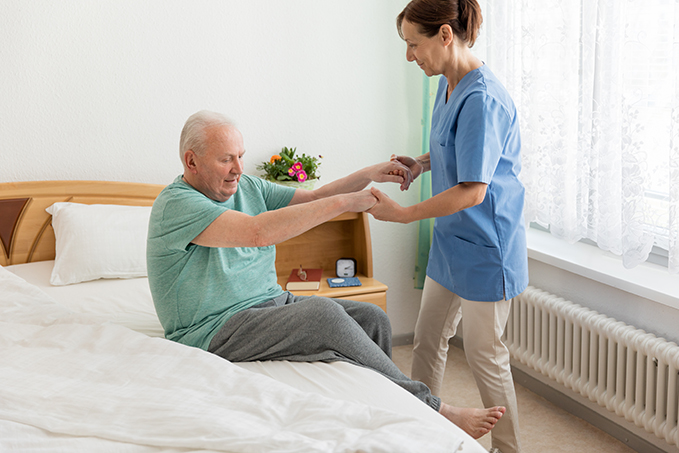Pressure sores, also known as bed sores, affect upwards of one in every ten seniors, and are even more prevalent in individuals who smoke, are living with a chronic disease like diabetes, or who have thin or fragile skin. Pressure sores are not merely extremely painful – they can easily progress to infections that can become life-threatening.
Bed sores are a result of insufficient blood flow from remaining in one place for an expanded period of time. For individuals with limited mobility or who are bed- or wheelchair-bound, the struggle against bed sores can seem endless. Yet it is crucial for those providing care for an elderly loved one to learn as much as possible about pressure sore prevention.
So how can you prevent bed sores in older adults? These tips can help protect your loved one’s vulnerable skin from painful and dangerous sores:
Alter Positions Frequently
- Help the senior change to a different position every couple of hours if bed-bound or every hour if wheelchair-bound.
- Use lifting devices to protect against friction while repositioning.
Use Supportive Devices
- Put specialized pads and cushions:
- Underneath calves to guard the heels
- In between knees and ankles
- To lie at an angle, protecting hips
Practice Good Skin Care
- Clean the skin with a mild soap and warm water, and apply lotion.
- If the skin is exceedingly moist, apply talcum powder.
- Massage areas subject to pressure sores to boost circulation.
Help With Healthy Eating and an Active Lifestyle
- Talk to the person’s health care provider for dietary and supplement tips for improved skin health.
- Encourage the senior to quit smoking.
- Improve hydration.
- Implement exercises each day per doctor’s recommendations.
If the person does get a pressure sore in spite of taking the proper precautions, it may advance through these four stages:
- Stage 1: A bruise-like patch can develop on the skin which can be warmer than the surrounding skin. This area might burn or itch.
- Stage 2: An open sore appears from the bruise. This could look like an abrasion or blister and be discolored and painful.
- Stage 3: As the sore gets worse, the surrounding skin darkens and the area is deeper.
- Stage 4: During this stage, damage occurs to the bone, muscle, and/or joints, and a bone infection known as osteomyelitis or even sepsis (a life-threatening blood infection) may occur.
Call your loved one’s physician immediately if a bed sore develops.
Compassionate Care Home Health Services can also help by providing daily skin inspections to help uncover vulnerable regions of the skin and the early signs and symptoms of pressure sores. Our team can also help with transferring, position changes, and walking to minimize the risk of developing pressure sores. Our professional senior care in Cadillac and nearby areas is just a phone call away. Contact us today at 877.308.1212.

